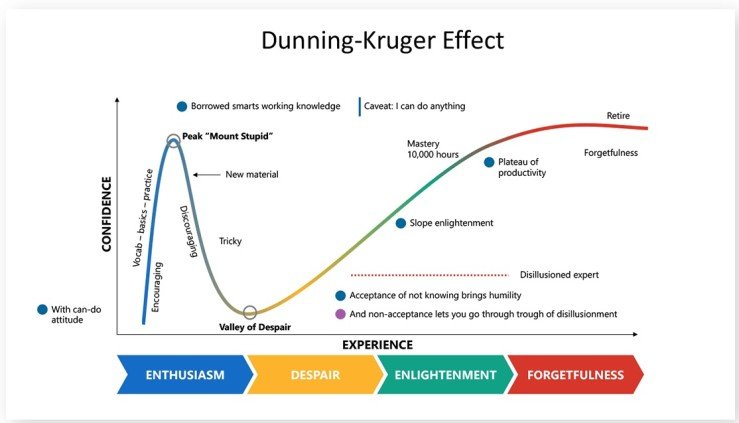Articles by Oakleigh Wealth


Flow-Based Budgeting
Have you ever tried to make a budget, but never really bought into it? Maybe it went out the window when life happened. Perhaps you felt like the bad cop when trying to make sense of your credit card bill with your spouse. Or, were you were the one being interrogated?!
Budgeting is challenging. It can generate conflicts and induce guilt or shame. It can feel artificially constraining and time-consuming.
I’ve tried many budgeting systems, and I’ve quit them all. That is, until I learned about Flow-Based Budgeting.


Risk Tolerance & Risk Capacity
Determining the right investment strategy is crucial for achieving long-term financial goals. Two key factors that play a pivotal role in shaping an individual's investment approach are risk tolerance and risk capacity. While these terms are often used interchangeably, they carry distinct meanings, each influencing how investors should approach investment selection.

Rethinking Monte Carlo Simulations
Monte Carlo simulations are a common tool in the financial adviser’s toolkit. They can help us frame the likelihood of success of a given plan by applying a large number of statistical simulations of future market returns to your financial plan.
On paper, this approach to financial planning makes a lot of sense; however, applying Monte Carlo analysis as an ongoing real-world decision-making tool often results in misunderstanding, anxiety, and/or overconfidence.

Look beyond bonds for sustainable retirement income
With the recent increase in interest rates, retirees or those nearing retirement might find it tempting to invest their nest eggs in longer-dated government bonds to secure a stable, long-term income. After enduring the "Great Financial Crisis," it's understandable why exiting the stock market might seem appealing. When you have only a few working years left or have already retired, the prospect of another market downturn can be quite daunting.
However, following this line of thinking could lead you into trouble!

10 Free & Effective Ways to Protect Yourself from Identity Theft
The threat of identity theft looms larger than ever before. Cybercriminals are constantly finding new ways to steal personal information and wreak havoc on your financial well-being. Protecting yourself from identity theft is an essential piece of a comprehensive financial plan. Here are ten inexpensive and effective things you should be doing to safeguard your identity:

Q: How much liability insurance do I need? A: As much as you can get!
Cut to the chase: with liability insurance, you should carry as much as you can. Most individuals and families carry liability insurance from two main sources: their home and auto insurance policies. But this may not be enough to fully protect your assets in case of an accident or a lawsuit.
That’s where “umbrella” insurance comes in, to cover you above the liability limits of your home and auto policies. However, you must coordinate coverage with your home and auto policies to make sure that you don’t have a potentially expensive gap in coverage.

You need a will, but do you need a lawyer?
Estate planning can be an uncomfortable subject. Most of us would prefer not to think about our demise, so we avoid it. Or, you may not know where to start, and the added hurdle of finding a lawyer has led you to put off creating or updating your will. But, like most people, you probably don’t need a layer to make a will.

June 2023 Newsletter: Tax Planning
This month's newsletter is all about taxes!
You're already ahead of the pack if you’ve kept reading beyond the first line. So many individuals try to limit the time and brain space devoted to taxes to the scramble of weeks leading up to Tax Day. The saying about “death and taxes” notwithstanding, there actually is something to be done when it comes to managing the impact and timing of your tax liability over the long run. Still, the time to do something about it is not the first two weeks of April when the bill comes due.

Defining the Elements
At Oakleigh, we use an app called Elements to show a quick snapshot of your financial health and track specific key metrics over time. This is very similar to how a doctor might track your vital signs to understand your physical health and quickly diagnose specific issues. Of course, there’s a story behind all of these numbers and we would dive much deeper for a full financial planning engagement. However, you might be surprised by how many important issues can be uncovered and addressed from these high-level metrics alone.

Donor Advised Funds: Don’t be daft, use a DAF
Donor Advised Funds(DAFs) are a simple but powerful tool to facilitate charitable donations, manage tax liabilities, and create a culture or legacy of charitable giving. No one donates to charity just to save on their taxes (the math doesn’t work like that!), and the many personal benefits of charitable giving are not necessarily correlated with the size of your gift or the resultant tax deduction. However, if you are already inclined to give (and I recommend it), DAFs are one of the more effective arrows in the quiver of a financial planner.

The Dunning-Kruger Effect (in investing (and life)
Dunning & Kruger’s study demonstrated something we all know to be true from experience: people with low levels of knowledge, skill, or competence tend to overestimate their own abilities. Their findings have broad implications for personal finance and investing, but it also raises broader questions about the human experience more generally. We are all prone to over confidence. Mastery, in any arena of life, requires that we overcome the despair of failure through dilligence and humility. But is that all there is?

8 Things You Should Spend Your Money On
Most of us don’t need any more help perpetuating our arrival fallacies or justifying impulse purchases. Ad agencies, search engines, and Instagram algorithms already have us figured out. Ask my wife, I have no trouble justifying any number of purchases based on how much time they’ll save, what a great investment they are, or how much better off our lives will be once we have ______.
Then there are others whose struggles are in the opposite direction. We all know friends and family members who have plenty of money, but have difficulty spending it, even on things that would really improve their lives, ease some burden, or add a modicum of comfort or enjoyment. “Penny wise, but pound foolish,” as they say..
Whichever camp you fall into, this list of “8 Things You Should Spend your Money On” is for you.

Budgeting is Optional (Tracking is Necessary)
If you’re like me, the idea of budgeting is not very high on your list of things you like to do, falling somewhere between going to the dentist and doing your taxes. If you’ve ever tried co-budgeting with a spouse or partner, it’s at best “no fun,” and at worst it’s an area rife with disagreement, judgment, and defensiveness. You may think you already know where your money is going (you don’t), or perhaps you don’t really want to know… It’s no wonder we don’t do it.

A Transparent Look at “Fee-Only” Financial Advising
There are so many different types of “financial advisors” in the marketplace, there’s no wonder that many folks lump them all together into one. Tell someone you’re a financial advisor at a party and they’ll either ask you for your latest stock tip, or they’ll quietly shift their wallet to their front pocket so they can keep an eye on it! In my experience, sadly, the latter is probably the more rational response!

When can I afford to Retire? Part 3: Expenses
Making the transition from building your savings to spending it down can be a jarring one, but arming yourself with knowledge about your actual expenses can give you the confidence to make the transition, which may even be feasible sooner than you think.

Can I Afford to Retire? Part 2: Income
Once you’ve given some thought to what your ideal retirement looks like (see part 1), answering the question “When can I afford to retire?” becomes an exercise in comparing expected future expenses with expected future income over the rest of your life and your spouse’s life. In this second part, we’ll look at the income side of the equation and ask, “where is the money going to come from?”

Can I Afford to Retire (and when)?
“When can I afford to retire?” is the question that drives more individuals into the office of a financial planner than any other. The sooner you start asking it, the better. Too often, the more tangible and immediate concerns of career and family life enable us to put off thinking about retirement, except in the abstract. It seems so far off in the future that it can be difficult to wrap your head around, (that is, until it’s right around the corner!).
In part one of this three-part series, we’ll take a step back and question what will retirement mean for me?



